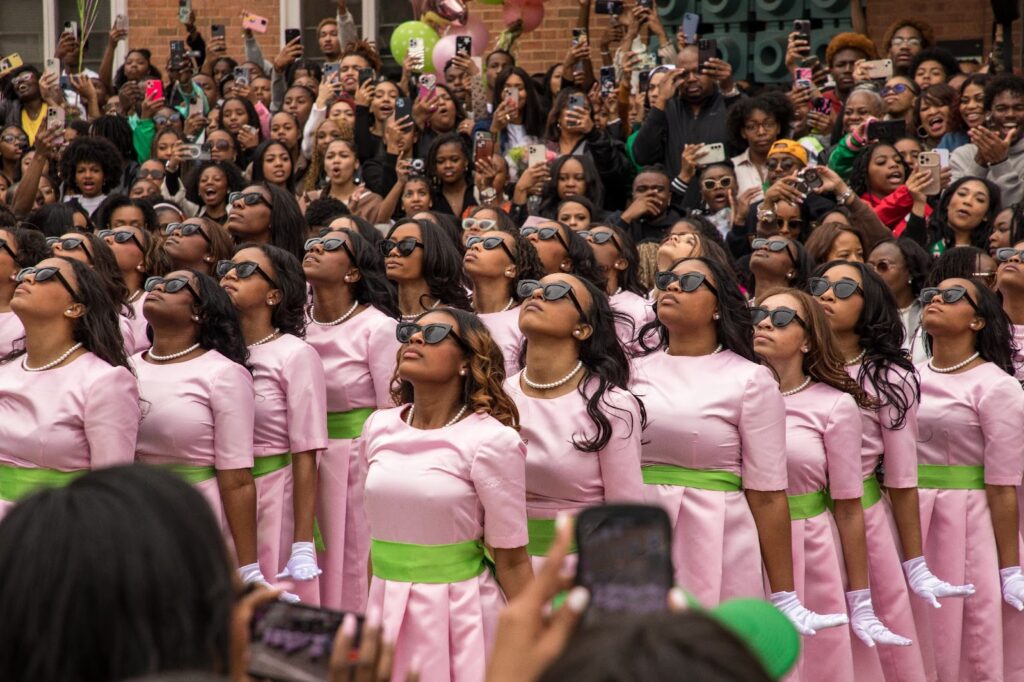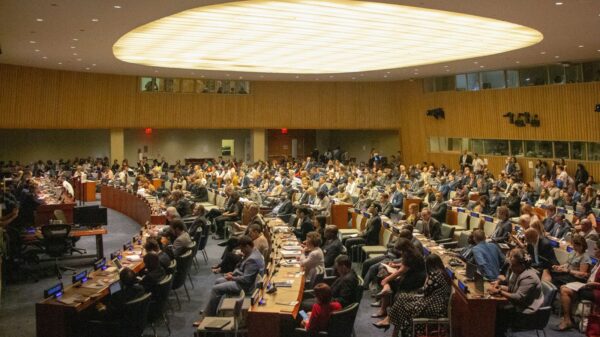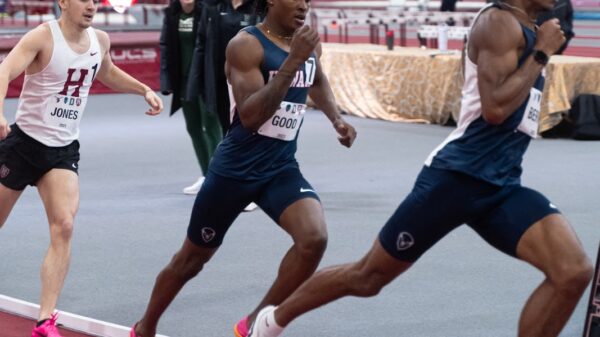
As Vice President Kamala Harris’ presidential candidacy takes center stage in the 2024 election cycle, Howard University and its Divine Nine organizations grapple with how to safely show support for any candidate in the face of Howard’s non-partisanship policy.
Harris, a member of Alpha Kappa Alpha Sorority, Inc. since her time at Howard in the 1980s, has garnered support from fellow members of the organization. However, organizations in Howard’s Divine Nine and other Howard-affiliated groups are trying to figure out how far their support can go.
Dominic Carter, Howard’s assistant director of fraternity and sorority affairs and a member of Omega Psi Phi Fraternity, Inc., explained why the organizations may need to take precautions when it comes to supporting political candidates.
“Since [Howard is a] nonprofit organization or company, we can’t be partisan. So all of our organizations, all the programs that they host, have to be non-partisan,” Carter said.
This non-partisan stance is critical for maintaining the integrity and board appeal of the organizations, ensuring they continue to serve their diverse memberships without appearing to favor one political agenda over another, according to Howard University’s policy statement.
The Hilltop contacted members of Alpha Chapter of Alpha Kappa Alpha Sorority, Inc. who declined to comment because they were not approved by the organization to speak on the subject in time for publication.
Walter Servance, head of Campus Life at Howard University and member of Kappa Alpha Psi Fraternity, Inc., reinforced this message, emphasizing that while the restriction is not a specific fraternity or sorority policy, it is a key component of the university’s broader policy framework.
“We can distribute information on the websites or on our social media. We can’t sponsor events as it relates to promoting a certain candidate, so we just make sure that everything that we do is non-partisan,” Severance said.
According to the policy, this ensures that Howard’s organizations comply with legal and ethical standards, avoiding any appearances of bias or endorsement that could compromise their mission.
By adhering to these guidelines, the university and its affiliated organizations maintain their focus on educational and community-building objectives, free from the complications of political alignment, the policy statement explains.
Some student organizations have missions that extend beyond political involvement. Carter explained that a strong political endorsement might overshadow or complicate the organization’s core objectives and values.
“Some of our organizations here have national ties, or ties to national organizations, like the NPAC [National Pre-Alumni Council] organizations, so their organizations can more so speak on that. However, while they’re here under the capacity of a Howard University organization, they’re unable to do that,” Carter said.
Rasheed Ali Cromwell, founder and president of the Harbor Institute and member of Omega Psi Phi Fraternity, Inc., mentioned that this also highlights an intriguing aspect of how the organizations are now able to mobilize.
“We can’t tell people who to vote for and what to vote for, but we can utilize our power and privilege and organize and mobilize in a way that I think will be just fantastic,” he said.
The organizations have increasingly focused on broader civic engagement efforts, such as voter registration drives and educational events about the political process.
According to Omega Psi Phi’s website, The Divine Nine council of presidents agreed to create a joint voter mobilization campaign, activating “thousands of chapters and members in [their] respective organizations to ensure strong voter turnout in the communities [they] serve.”
Cromwell said these initiatives contribute to political discourse without endorsing specific candidates so that the organizations “don’t jeopardize their nonprofit status.”
“We’re not allowed to support any particular political candidate, but many of our D9 organizations have set up what are called political PACs, and so they set up separate, associated organizations that can support and endorse political candidates,” he said.
PACs (Political Action Committees) are organizations created to financially support the candidate of one’s choosing. In August, Harris’ sorority, Alpha Kappa Alpha Sorority, Inc., launched its own PAC to endorse political candidates.
Alpha Phi Alpha, Fraternity, Inc., established a $100,000 grant program to encourage voter engagement efforts, according to their website. Microgrants up to as much as $3,000 have been awarded to local chapters to encourage voter mobilization.
Despite the commitment to non-partisanship, fraternities and sororities have emphasized voter registration, making sure that everyone’s voice is heard on Nov. 5.
Zeta Phi Beta Sorority, Inc.’s “Get Engaged” initiative highlights voter registration drives as a key part of their mission, along with writing to elected officials and mobilizing against social injustices.
Alpha Phi Alpha Fraternity, Inc. has a program called “A Voteless People is a Hopeless People” that is focused on getting members, family and friends registered.
Even without the ability to officially endorse a candidate, Cromwell believes it is critical that organizations and communities recognize the significance of this moment.
“She is the embodiment of who we are, not just as a D9 member, but an HBCU graduate,” he said. “Everybody knows Howard, but there’s like, 100 other HBCUs. How can we help use that leverage to shine light on them?”
He added that Harris’ candidacy has already had a notable impact.
“I think when she first accepted the nomination, Google went up like 800 percent because people didn’t even know what an HBCU is, that’s raising the profile. So it’s just, I don’t see any downside. I really don’t.”
Carter also saw the value in celebrating Harris’ achievements, irrespective of the election’s outcome.
“I think it’s wonderful because it just touches on why some of these organizations were founded in the first place,” he said.
Copy edited by Camiryn Stepteau













